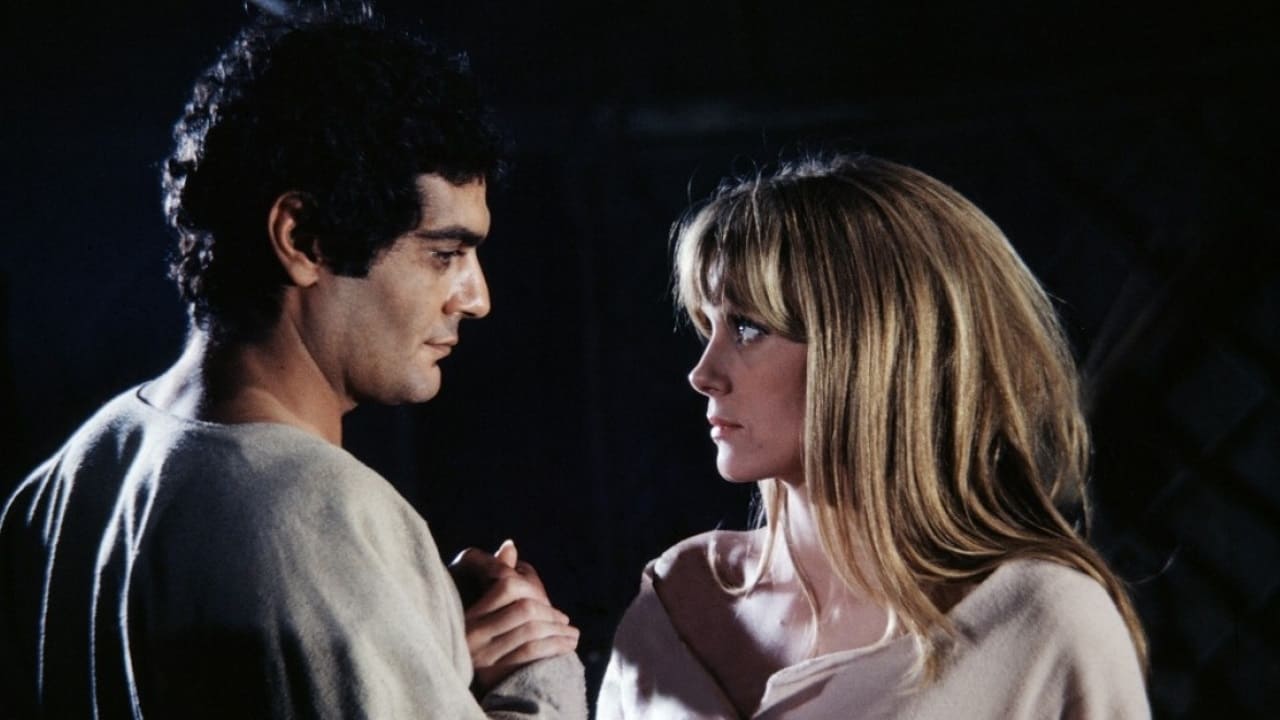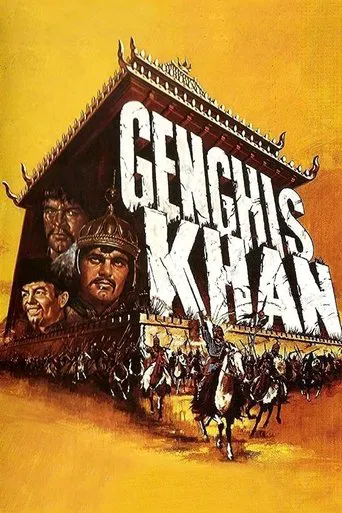

Don't listen to the negative reviews
... View MoreIt isn't all that great, actually. Really cheesy and very predicable of how certain scenes are gonna turn play out. However, I guess that's the charm of it all, because I would consider this one of my guilty pleasures.
... View MoreOk... Let's be honest. It cannot be the best movie but is quite enjoyable. The movie has the potential to develop a great plot for future movies
... View MoreThere are moments that feel comical, some horrific, and some downright inspiring but the tonal shifts hardly matter as the end results come to a film that's perfect for this time.
... View MoreThis film about the great Tatar * conqueror Genghis Khan who stated as the ordinary boy called Temujin is the best film about Genghis Khan so far before the the debut of the Kazakh film Mongol in 2007. The reason for this is because its production and directing as a costume drama is good that makes it enjoyable though as a notable drama it fails to be an epic as the story line is wooden that spoils the overall film. The famous John Wayne disaster "The Conqueror" can compensate for this as the story line and its representation of the characters is much closer and darker to the rise of the real Genghis Khan although the advantage this film has over the central theme of The Conqueror is that it highlights Genghis Khans conquests of China and Central Asia. Despite the anecdotal and soap based story line the music, costumes, cultural representations and its filming locations in the beautiful former Yugoslavia which was a good choice makes this film a good costume drama on an interesting man. The only way this film could of been made as an historical epic in the era of the zenith of their productions is that the theme central to it should of been about the Khans rise as represented in the Conqueror - which should of disappeared in to the abyss before moving to his conquests and narration of his legacy which gave the film depth. * Many reviewers have said of the cast who play in this film as not being Asian enough. This is true for the Chinese who are clichéd and are not correctly represented. However the characters playing "Mongols" such as Omar Sharif and Francois Dorleac were for the time well cast and well played and they can be accepted in their roles by being presented as Turkic (Tartar) as the Mongols were known at their height.
... View MoreLike another reviewer said, not quite as bad as I thought it was going to be. With this near all-Caucasian star line-up I suppose it couldn't be. Presumably having a summer holiday. Half the time I mistook Kenneth Cope for Oliver Reed. It seems to have been made as a sort of joke, along the lines of Gilbert and Sullivan's Mikado. Not exactly Oriental. Was it racist ? Genghis Khan, the most tyrannical and genocidal maniac before Stalin and Hitler, comes across as the Lord High Executioner, a civilized, courteous and charming gentleman to the bitter end. Difficult to know why Omar kept sparing his deadly enemy. Needed him for the final show-down, I guess. Slightly farcical. Morley and Mason get despatched gruesomely but tastefully. Wasn't too sure of what they'd been doing wrong. Unpoetic justice. They seemed so harmless, even if Morley carried his aestheticism to inordinate lengths. Dandy fingernails. All the deaths were very discreetly handled, even if there were rather a lot of them. Off-stage. At some moments it seemed a bit like a Wild Eastern, at others like the Sound of Mongol Music. I haven't seen Lord of the Rings, but I imagine Michael Hordern would be dead right for it. Fixedly aimed at the under-14 market, I can't help wishing myself back in those far- off days. I would really have enjoyed it then.
... View MoreAs a kid I remember watching this movie when it first came out and I can still recall how impressed I was with it. For a long time it ranked as one of my most favorite movies ever. However, having recently viewed it again I must admit that my opinion has changed quite a bit since then. Now, don't get me wrong, it's still fairly entertaining even today. But, quite frankly, the obvious flaws and inaccuracies within the story simply cannot be dismissed or ignored. For starters, the history is all wrong. Although "Subodei" (played by Kenneth Cope) was indeed a fine general and a major figure in the Mongol conquests, he was not in any way, shape or form related to "Bortei" (Francoise Dorleac). Likewise, although "Jamuga" (Stephen Boyd) was definitely a rival of Genghis Khan (Omar Sharif) there was no "Mongol duel" between them which supposedly settled everything once and for all. But history aside I suppose it passes for good theater and I guess it's better to just leave it at that. Having said that, however, I must admit that although Francoise Dorleac was quite beautiful, her blond hair and blue eyes didn't quite fit in with the features normally associated with those of a Mongolian woman. Neither, for that matter, did James Mason (as "Kam Ling") as a Chinese wise man. In any case, although it may not be as great as I remember it it's still not too bad even by today's standards and as a result I have rated it accordingly. Average.
... View MoreOne of the world's most legendary conquerors gets a heroic sheen in this colorful and often inaccurate latter day epic. Sharif plays the title role, a young Mongol who watches his father die at the hands of his rival Boyd and is then burdened with a large yoke around his neck, thus rendering him incapable of much, if any, physical threat. One day, Boyd makes the mistake of taking the yoke off and from then on the two are locked in combat to the death. In this rendition of the story, Sharif is bent on a united tribe of Mongols, something Boyd is against, preferring his independence. Boyd would rather team with other leaders, such as Wallach, to stamp out Sharif. Meanwhile, Sharif aligns with and learns from the Chinese, though they do not wish to see him leave once he has aided them in their own struggles. Sharif is noble and driven and even, at times, tender, not qualities that are always associated with the name Genghis Khan, but which are intended here. Boyd is one-dimensionally nasty throughout. The character he is playing was, in real life, a one-time ally, but that is not explored. Rather the script plays up a longstanding enmity that can only be stopped by the death of one or both of them. Dorleac, with 1960s bangs, plays Sharif's devoted wife and support system. It's a mostly decorative role aside from a few feisty moments, but she fills it well enough. Savalas is billed high, but is given next to nothing to do in the somewhat crowded landscape. Wallach appears briefly, but is at least permitted to make some sort of impression. Hordern rather hams it up as Sharif's partially blind mentor while Strode, as his muscular aide, provides silent strength. Two notable actors appear in faux-Asian makeup, as was the custom of the day. Morley, as the Chinese Emperor, fares best despite his inappropriateness to the role. His ever-individual style adds texture and humor to the part. Mason, face fixed in a permanent grin and speaking in the most stereotypical manner imaginable, is less impressive. It's a performance that will likely offend those who lean towards the sensitive in cases like this. Almost worthless as a history lesson, the film does succeed in delivering a fairly grand adventure with terrific music, decent battle sequences and positively jaw-dropping scenery. Though a pat approach to the script and an overriding simplicity threaten to mar the movie irrevocably, for those who aren't too demanding, the finished product is entertaining. Look out for the amusing glimpse of a Chinese princess in which she is nude except for some artfully arranged bits of scenic bric-a-brac surrounding the screened window some men are looking through. The mainstream cinema was still just toying with various amounts of exposed flesh in this time period. Sadly, Dorleac would die within two years in a fiery car accident. Mason, Sharif and Boyd had previously appeared together in the superior, but not very successful, epic The Fall of the Roman Empire."
... View More